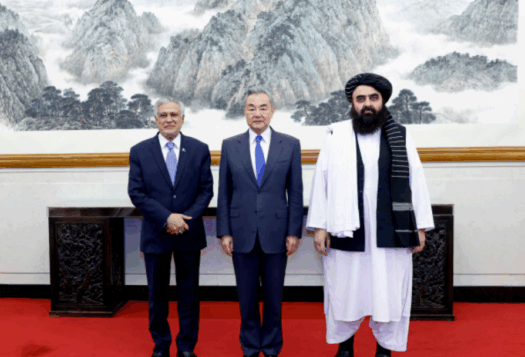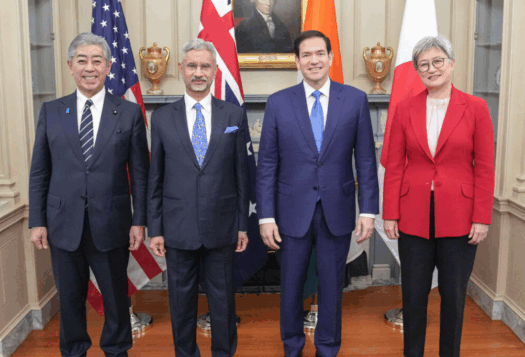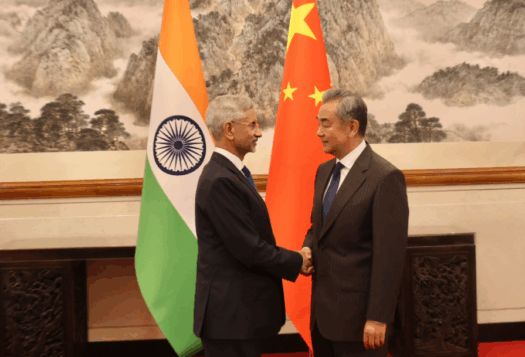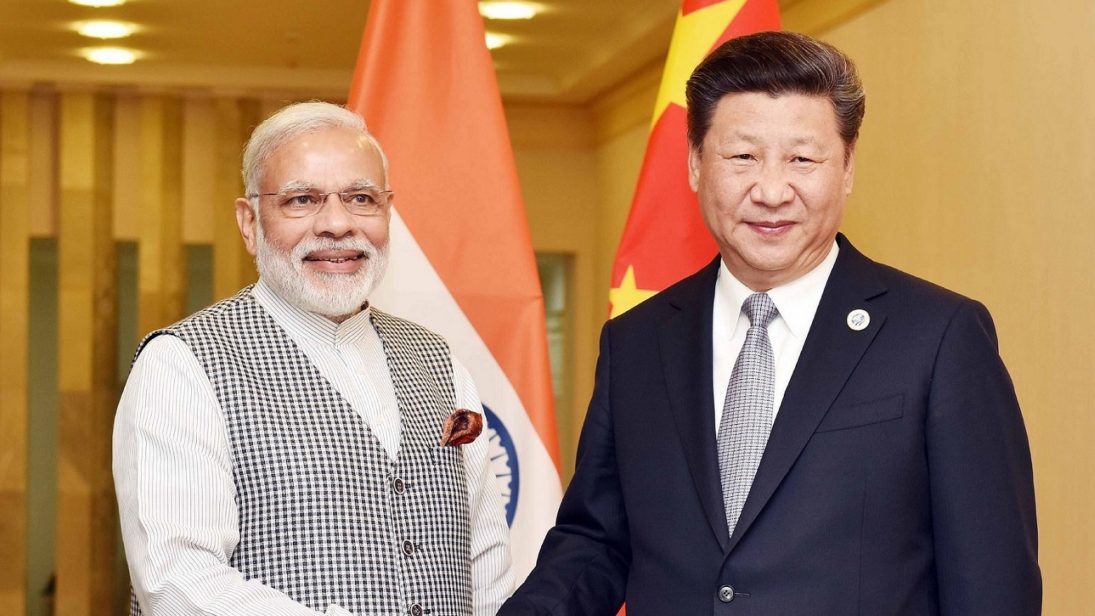
While China’s growing alliance with Pakistan has raised alarm in relevant quarters in India, the situation might not be threatening to regional stability in South Asia. In fact, China might be the most well-placed country to mitigate crisis situations in the region, owing to its leverage with Pakistan and economic engagements with both Pakistan and India. In fact, in line with its economic interests in the region, China has moved away from solely supporting Pakistan to a more nuanced position.
The growing China-Pakistan relationship has led to Indian apprehensions, specifically with regard to China granting two naval warships to Pakistan for maritime security as well as docking of a Chinese nuclear submarine at the Karachi port in 2015. Moreover, Prime Minister Modi raised concerns with President Xi Jinping over the China-Pakistan Economic Corridor (CPEC) running through Pakistan-administered Kashmir and terrorism within the region that affects Indian security. Similarly, India’s efforts to impose sanctions on Jaish-e-Mohammad chief Masood Azhar at the United Nations Security Council have been stymied by a technical hold placed by China.
Thus, one cannot deny that a regional strategic game is at play. With China bolstering Pakistan’s security, China also feels the weight of an increased United States-India defense partnership. However, China’s response to crisis situations in South Asia has been more nuanced, calculated, and measured.
China’s response to India-Pakistan strategic rivalry
In the 1960s, Chinese policy had a very strong pro-Pakistan tilt, driven by security threats emanating from India. However, China’s policy in South Asia experienced a shift after Deng Xiaoping reoriented Chinese domestic and foreign policy, and took it in a more accommodationist direction towards the capitalist world. In the 1990s, pragmatic economic calculations led China to shift its stance on Kashmir from one which was supportive of Pakistan to a more balanced position.
In the recent past, following the Pathankot and Uri attacks, China put forward a balanced narrative, seeking de-escalation and regional stability in South Asia and seemingly distanced itself from Pakistan. Beijing condemned the Pathankot attack and claimed that it could have been launched intentionally to disrupt the improvement in Pakistan-India ties witnessed before Pathankot.
An interesting phenomenon in Pakistan-China relations was witnessed after the Uri attack when the Punjab Chief Minister’s Office remarked that China had assured its support for Pakistan in case of any foreign aggression and that China supported Pakistan’s stance on the Kashmir dispute. However, the Chinese foreign ministry later denied that any such assurance had been provided and reiterated China’s stance that Kashmir is a bilateral issue between India and Pakistan that can best be addressed through dialogue and consultation. Thus, rather than take a policy position overtly supportive of Pakistan, China displayed pragmatism, emphasizing talks between India and Pakistan.
China’s economic concerns and South Asian stability
The major reason why it is in China’s interest to place emphasis on de-escalation of hostilities between India and Pakistan is the economic imperative. CPEC, worth approximately $52 billion, is a geo-economic venture and part of China’s One Belt One Road (OBOR) initiative, envisaging a trade and economic corridor linking Asia with Europe.
Regional tensions in South Asia stand as a bulwark to CPEC for they disrupt the stability crucial to the sustenance of investments and profits. In other words, crisis and conflict scenarios between India and Pakistan negate potential economic benefits from the corridor. Thus, more than anything, it is in China’s interest to ensure that India and Pakistan behave responsibly, addressing issues of common concern.
Similarly, while Pakistan and China look forward to future economic gains, China is also embedded in an economic partnership with India and emerged as the latter’s largest trading partner in 2014. India-China bilateral rose from under $3 billion in 2000 to $70.8 billion in 2016. Despite differences in strategic outlook, this economic integration provides China leverage in the region. Therefore, economic ties with both Pakistan and India drive China’s role in the region, leading to a Beijing that is more interested in stability than anything else.
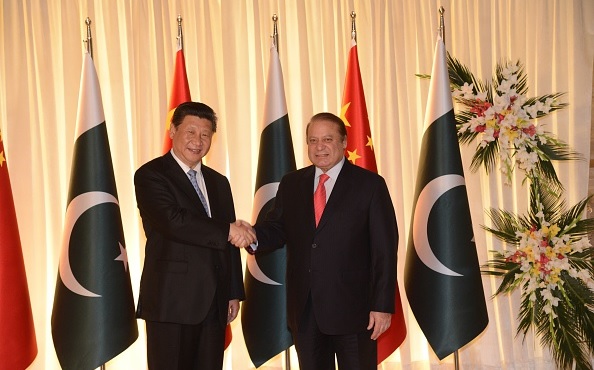
China, Pakistan, India and CPEC: Conflicting Concerns
As CPEC moves ahead, China has been careful in its diplomacy in South Asia and attended to Indian concerns by maintaining that CPEC is not designed against India and has not taken any formal side on the Kashmir dispute.
Interestingly, recent reports emanating from Pakistan suggest China’s desire to see Gilgit-Baltistan integrated into Pakistan’s administrative set-up. From China’s standpoint, the economic imperative is once again at play for it cannot risk its investment running through a territory disputed between India and Pakistan. For Pakistan, the paradox is that the integration of GB means foregoing its traditional position, which is that GB is a disputed territory linked to the Kashmir dispute. This would allow India to do the same with respect to Indian-administered Kashmir. In sum then, Chinese overtures with respect to GB stand as a challenge to Pakistan’s policy elite and it remains to be seen how Pakistan responds to China’s security concerns here.
As CPEC materializes and further growth is witnessed in Indo-China trade, China’s foray into South Asia will continue to be moderated by economic and business considerations, not merely geostrategic concerns. The logic of economic engagements with both Pakistan and India will keep China sufficiently engaged, and in this sense, China’s priorities would be well directed towards crisis management and de-escalation in South Asia.
***
Editor’s Note: Click here to read this article in Urdu
Image 1: Flickr, Narendra Modi (cropped)
Image 2: Getty Images, Andalou Agency
